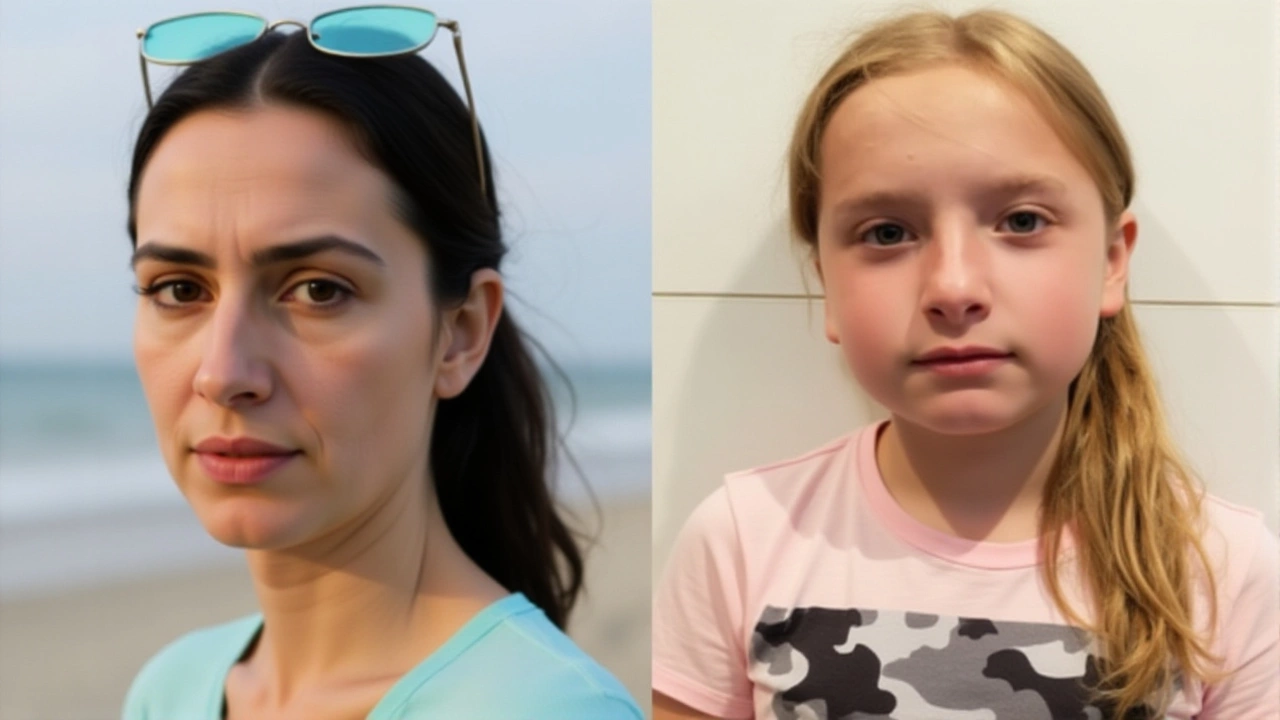On 24 October 2025, Dahbia Benkired, a 27‑year‑old Algerian national, was handed France’s first ever life without parole sentence after being found guilty of raping, torturing and killing 12‑year‑old schoolgirl Lola Daviet in the 19th arrondissement of Paris. The verdict, delivered by the Paris Court of Assises, shocked a nation still reeling from the horror of the October 2022 crime and ignited a fierce debate over immigration enforcement.
Background of the Crime
It was an ordinary autumn afternoon on 14 October 2022 when Lola, who attended a local primary school near the Canal de l'Ourcq, failed to return home after school. Her parents, both concierges at the same residential building, raised the alarm around 4 p.m. Security footage later showed Benkired, who was living with her sister in the same block, coaxing the child into her sister’s apartment around 3 p.m. The teenager was bound with duct tape, a method that caused asphyxiation before the assault escalated.
Investigators pieced together a chilling sequence: after the rape and torture, Benkired stuffed Lola’s body into a plastic trunk and attempted to transport it to a nearby café. When a patron questioned the heavy luggage, she allegedly muttered, “I am selling a kidney.” The trunk was recovered on a street just blocks from Lola’s home, and the child’s body was found the same day.
Trial and Verdict
The trial, which ran for a week before three magistrates and six jurors, began on 18 October 2025. Prosecutors argued that the charges – “murder of a minor under 15” and “rape of a minor with torture or barbaric acts” – warranted the maximum penalty. A key piece of evidence was Benkired’s immigration status: she had overstayed a student visa and ignored an official expulsion notice issued in August 2022.
During testimony, the prosecution quoted Benkired’s own words about the suitcase, while defense lawyers contended her mental state was “seemingly disorder‑free,” a phrase later echoed by psychologists who evaluated her.
When the jury returned its verdict, the courtroom erupted. Benkired was convicted on all counts, and the judges imposed a life sentence without the possibility of parole – a sentence never before applied to a female defendant in French judicial history.
Political Fallout
Even before the verdict, the case became a lightning rod for right‑wing politicians. Éric Pauget, a deputy for the Les Républicains, declared the murder a symptom of France’s “weakness on immigration.” He suggested that stricter expulsion measures could have prevented the tragedy.
Family members of Lola publicly begged the media not to politicise the loss, saying their daughter’s name should not become a talking point. Still, the incident fed into broader anti‑migrant narratives, prompting protests outside the Ministry of the Interior and heated debates on every news panel.
Psychological Insights
Psychologists hired by the court painted a baffling portrait. One expert noted Benkired displayed “no prior criminal record, no apparent mental illness, and a calm demeanor during interrogation.” The paradox of a seemingly ordinary woman committing such barbaric acts sparked discussions in forensic psychiatry circles about hidden psychopathology.
Another analyst pointed out the stress of illegal status and looming deportation as potential catalysts, though they cautioned against reducing a complex crime to a single factor.
Implications for Immigration Policy
The ruling forced lawmakers to revisit the August 2022 expulsion order that Benkired ignored. Critics argue the government’s tracking system failed, allowing her to remain in France undetected for months. A draft amendment, floated by the Ministry of the Interior, proposes tighter monitoring of visa overstays and immediate detention upon issuance of a departure notice.
Human‑rights groups, however, warn that harsher measures could push vulnerable migrants further into the shadows, making it harder for authorities to intervene before tragedies occur. The debate now sits at the intersection of public safety and humanitarian law.
What Comes Next?
Benkired will spend the rest of her life behind the walls of La Santé prison, with no chance of parole. Appeals are possible, but French jurisprudence suggests the life‑without‑parole decision will stand.
For Lola’s family, the sentence offers a form of closure but does not erase the scar. They have started a foundation aimed at supporting victims of violent crimes and advocating for child‑safety measures in schools.
Nationally, the case may serve as a catalyst for legislative change, though whether reforms will be swift or merely symbolic remains to be seen.
Key Facts
- Defendant: Dahbia Benkired, 27, Algerian national.
- Victim: Lola Daviet, 12, French schoolgirl.
- Crime date: 14 October 2022, around 3 p.m.
- Location: 19th arrondissement of Paris.
- Sentence: Life imprisonment without parole, pronounced 24 October 2025.
Frequently Asked Questions
How does this verdict affect immigration enforcement in France?
The case highlights gaps in tracking visa overstays. Lawmakers are now debating stricter monitoring and immediate detention for those who ignore expulsion notices, aiming to prevent similar tragedies.
What were the main pieces of evidence that led to the conviction?
Security camera footage showing Benkired with Lola, the discovery of the plastic trunk containing the body, forensic analysis linking DNA, and Benkired’s own statements about the suitcase all formed a solid evidentiary chain.
Why is this the first life‑without‑parole sentence for a woman in France?
French law reserves life without parole for the most heinous offenses, traditionally applied to male perpetrators. The unprecedented nature of Benkired’s crimes—rape, torture, and murder of a minor—prompted judges to break that pattern.
What have psychologists said about Benkired’s mental state?
Experts described her as outwardly calm and lacking a documented psychiatric disorder, a profile that makes the crime especially perplexing and fuels ongoing research into hidden psychopathology.
How are Lola’s family coping and what are they doing now?
The family has set up a foundation to support victims of violent crimes and advocate for school safety measures. They continue to mourn their daughter while seeking to turn tragedy into lasting change.
